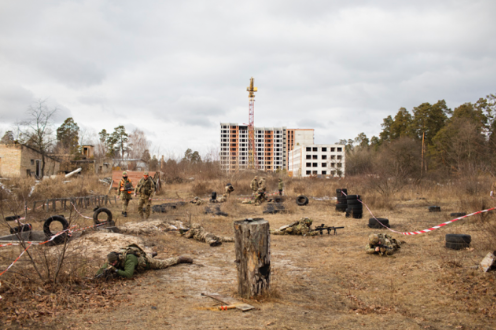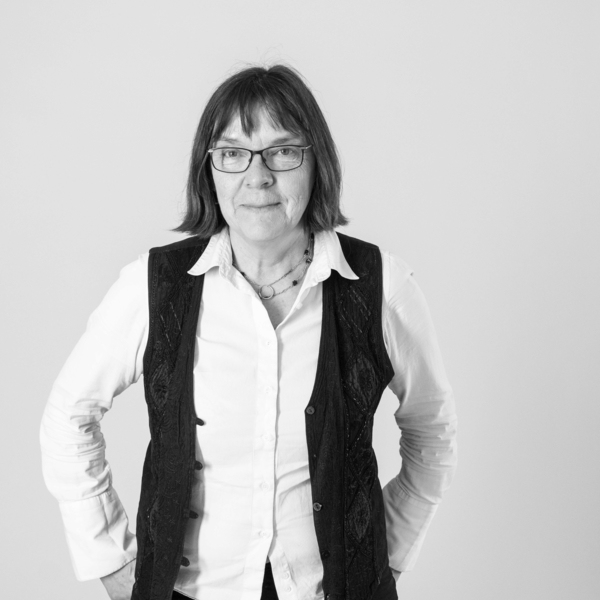The ASA is the professional association for social anthropology. Read more about us >>
Critical Junctions:
Anthropology on the Move
Department of African Studies and Anthropology (DASA), University of Birmingham
08-11 April 2025
NEWS UPDATE! - ETA (Electronic Travel Authorisation) to enter the UK
From 2 April 2025 EU TRAVELLERS who did not previously need additional documents to enter the UK will require an ETA (Electronic Travel Authorisation). At the time of writing (11 March 2025) these cost £10, cover multiple visits to the UK and last for 2 years or until the holder's passport expires, whichever is sooner. Please check the latest information on ETAs to ensure you are prepared for your visit: ETA Information March 2025. This link also has information on how to apply for an ETA.
Scam-Aware
While our database is secure, a search for 90% of academic names (listed as convenors/authors) yields an active email address which can be spammed by scammers posing as conference accommodation support services, requesting payments/personal info (we do NOT use such providers); or sent spoof emails purporting to come from Council/Committee/Exec members requesting financial assistance. Please check the sender information carefully and the grammar of such requests, and if you do not recognise the email address as ours or the grammar is somewhat 'off', delete such emails. We cannot prevent receipt of these emails which do not come via our system.
Call for Co-editors and Editorial Board Members at the Anthropology Matters Journal
The outgoing editors of Anthropology Matters Journal are issuing a call for one new co-editor, as well as an editorial board, consisting of five-six members that will represent different areas of theoretical and ethnographic specialisation. Read more here >>
2024 Firth Lecture recording now out
View the recording here. This year's lecture was titled The Incarcerations: BK-16 and the Search for Democracy in India and was given by Professor Alpa Shah (London School of Economics).

PeopleFest 2024 was the first public festival of anthropology presented by the ASA. Organised and hosted by the University of Manchester’s Department of Social Anthropology from 5-7 April, the festival featured 27 events at 7 venues across Manchester, welcoming members of the public and anthropologists alike. Events included performances, art exhibitions, book talks, public lectures, workshops, walking tours and more, exploring pressing issues in climate change, race, disability, labour, and creativity, among many others. The 2024 Firth Lecture was given by Prof Alpa Shah, discussing her powerful new book The Incarcerations: BK-16 and the Search for Democracy in India (OR Books, 2024).
The festival was an experiment for the ASA to explore alternative platforms for sharing anthropological research beyond our regular conference. Thanks to enormous effort by many different people, the experiment was a success. Here are a few headlines from our event evaluation:
We provided new stages for anthropologists to showcase their research: PeopleFest featured the work of 53 anthropologists based at 26 institutions from 9 different countries, supported by 15 fantastic student volunteers.
We had great audiences: All events were free, and attendance was exceptional, with 752 total registrations for ticketed events. Attendance was excellent on a drop-in basis as well, as attendees milled between timetabled events.
… many of these were new: of those who responded to our survey, 61% had never attended an ASA event before, while 27% had never been to an event hosted by the University of Manchester.
We showcased collaborations beyond anthropology: Half of all events were curated in collaboration with community and industry partners outside of academia.
We put on a great show: 100% of respondents said the events they attended matched or exceeded their expectations
We’re going to do it again! When asked whether PeopleFest should happen again in the future, 91% of respondents said Yes, definitely.
Attendees commented:
“It was an amazing event that opened the door of anthropology to many of us who had no idea what that meant. The stories, the people, the work? Top notch!”
“What a great weekend! One of the other people at the same event as me said 'every event I've been to made me see anthropology in a different light'. Couldn't put it better!”
“Inspiring talks and performances, very well organised festival”
“It was a tonic! Thank you. It gave me a great many ideas about my own practice.”
PeopleFest Committee:
Constance Smith, Meghan Rose Donnelly, Jolynna Sinanan, Alexandra D’Onofrio, Andrew Irving. With huge thanks to Fran Rocca and the Nomad IT Team, especially Triinu Mets and Carlotta Ottonello.
See pictures of Peoplefest
Wendy James
The ASA was sad to learn that longstanding member of the ASA and the anthropological community, Professor Wendy James, passed away on 27 April. Read her University's obituary notice.
Kent University: Proposal of withdrawal for Social Anthropology degree
ASA was concerned to hear that Kent University has put forward proposals to withdraw their degrees in Social Anthropology. Anthropology at Kent has a very illustrious history. Many leading Anthropologists have graduated from Kent, some now heads of Anthropology departments at other universities. Over 60 years, Kent has been one of the departments that shows what integrated anthropology could be, through cooperation between Social Anthropology and Conservation Biology in particular. In these times, when the issues of biodiversity and climate change are so immediate, that combination of research and teaching is more essential than ever. We are in touch with the leadership at Kent Canterbury, to urge them to reconsider their strategy.
Social Anthropology is a growing discipline in some universities, and we know that when students have the opportunity to study with us, they usually become more interested and choose more Social Anthropology modules where they can.
We also want to help dispel the myth, currently circulating among some university vice-chancellors, that applications to Social Anthropology are falling. In fact, we are seeing increased differentiation between universities, but no general decline in interest. Social Anthropology is a thriving subject, one that is increasingly valued across other disciplines, and many of us are finding ourselves in demand to contribute to interdisciplinary research.
We are in a unique position to address pressing global challenges, as well as helping new generations to find ways to understand one another, develop empathy and challenge prejudices.
We will be demonstrating this at our next public event, the PeopleFest in Manchester in April.
Network for the Anthropology of Time: inaugural lecture
The ASA was delighted to see the launch of a new network, the ASA Network for the Anthropology of Time. Launched at St Andrews University with a three-day conference in the first week of October, the keynote speaker, Dr Chloe Ahmann, gave a powerful talk entitled Time Bomb: Toxic Disavowal in the Shadow of Apocalypse. The talk is available on the network webpage. Congratulations to the network’s founding co-convenors, Dr Gabriela Manley, Dr Daniel Knight and Dr Felix Ringel.
What Does the Future Hold? Durham anthropologists in podcasts
ASA members have been active in the public sphere, with a panel at the Durham Book Festival on October 14th, under the heading What Does the Future Hold?.
Durham Book Festival, organised by New Writing North, have produced a podcast series featuring six Durham anthropologists, available online.
The State of UK Anthropology in 2023: findings and recommendations from the ASA Survey
The ASA is increasing its engagement both with existing members and with a new generation of anthropologists. As part of this aim, between January and May 2023, ASA gathered data on previous interactions with the association and gave members and prospective members the opportunity to share their views about the present and future of anthropology in the UK. The data gathered in the report aimed to investigate three main areas. First, the number of social anthropology PhDs and postdocs enrolled or working in UK institutions. Second, the post-PhD career destinations of anthropologists graduating from UK institutions. Third, the perspectives anthropologists have of the ASA as an organisation.
The overarching project sought to focus on the status of individuals at the earliest stages of their career in social anthropology and aimed at helping the ASA committee plan future events and enriching careers in anthropology at all levels.
The report has been updated after the mistaken earlier omission of Queen's University, Belfast.
My research in Anthropology videos
At the recent ASA annual conference, we interviewed a handful of delegates regarding their research interests. You are invited to browse the playlist of short recordings.
Obituaries
Charlotte Aull Davies
The ASA was very sorry to learn of the passing of Charlotte Aull Davies. Read about her life.
Pnina Werbner
The ASA was very sorry to learn of the passing of long-term and active member, Pnina Werbner, on 17th January. Well-known and respected for her work on cosmopolitanism, she was regularly to be seen at ASA conferences - indeed she hosted the 2006 jubilee conference at her University (Keele), resulting in an ASA monograph from it. Pnina is survived by her husband Dick Werbner (also a longstanding ASA member) and their two children. Read her obituary by Katharine Tyler.
Alan Barnard
The ASA is sorry to learn that longstanding ASA member Alan Barnard passed away suddenly on Friday. Dr. Magnus Course, Head of Social Anthropology at University of Edinburgh writes:
Alan was born and raised in Baton Rouge, Louisiana, but spent most his life here in Scotland, joining the Department of Anthropology at the University of Edinburgh in 1978. He received a personal chair in the Anthropology of Southern Africa in 2001 before retiring in 2015 after 37 years' service. His immense contribution to the discipline was recognized with his election to the British Academy in 2010. Alan was especially proud of his appointment to the role of Honorary Consul of the Republic of Namibia in 2007. Over the decades, Alan was the author of dozens of books and articles, ranging from his earlier work among the marginalized hunter-gather communities of Namibia and Botswana to later more theoretical work about the contribution social anthropology could make to explorations of the origins of human language and society.
His gentle kindness, his friendship, and his unfading passion for anthropology's biggest questions will be sorely missed.
Other News
Scholars at risk
Scholars at risk who are looking for safety and support are encouraged to apply to this joint scheme between the Academies in the UK and the Council for At-Risk Academics. Anthropologists are welcome to contact ASA for help in identifying suitable host institutions, and our directory of members is available for consultation.

War in Ukraine – an Interview with Dr Taras Fedirko
ASA Media Officer Andrea E. Pia talks with Dr Taras Fedirko about his recent ethnographic fieldwork on militarism and media oligopolies in Ukraine. Dr Fedirko discusses the political and social contexts of Ukraine after the Maidan revolution and clarifies the role that media corporations, Putin’s propaganda, and para-military groups have played in the lead-up to Russia’s invasion of Ukraine. Read in full...
Statement on racism by the committee of the ASA
The ASA Committee believes that anthropologists today, like the vast majority of scholars in social science, the humanities and the natural sciences, think that racism, as a means of producing and reproducing inequality based on ideas about racial difference, is morally wrong and that...Read the full statement.
ASA Ethical Guidelines (EGG) Review
In the fall of 2019, the ASA Ethics Guidelines Working Group circulated a survey soliciting members'
feedback on their experiences of institutional ethics review. 87 respondents completed the survey and a summary of the results is now available here.
If you have any queries about the work of EGG, please contact Jude Robinson at ethics(at)theasa.org.
The ASA considers individual requests for financial assistance by members to support activities that will further the aims of the ASA and professional anthropology in the UK. The maximum amount that any applicant can apply for is £100. Read more.
 The ASA is a
member of the World Council of Anthropological
Associations.
The ASA is a
member of the World Council of Anthropological
Associations.
Read the ASA's Privacy Policy and Terms & Conditions, in relation to sale of membership and conference services.





 Re-Creating Anthropology: Sociality, Matter, and the Imagination Edited by David N. Gellner, Dolores P. Martinez (Apr 2022)
Re-Creating Anthropology: Sociality, Matter, and the Imagination Edited by David N. Gellner, Dolores P. Martinez (Apr 2022)